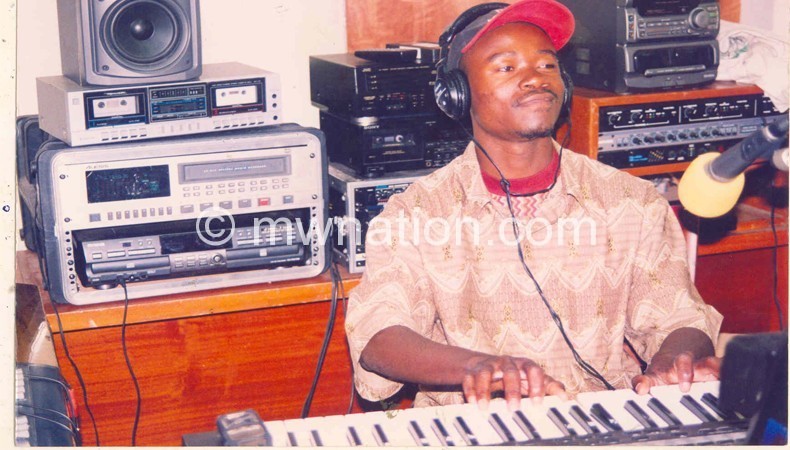PRODUCERS SEEK AUTONOMY
Some music producers in the country are calling for the establishment of a semi-autonomous body which will be responsible for matters relating to producers as the engine of music.
As it stands, producers, session artists and technical people involved in the input and output of music are regarded as musicians and, therefore, registered under the Musicians Union of Malawi (MUM).

However, some producers believe that having an independent body will, among other things, deal with the long overdue issue of royalties as well as piracy for those who double as musicians.
Voicing out his concerns on a musicians’ WhatsApp group, long time producer Joseph Tembo said there is an urgent need for having a producers’ body which will be a subsidiary of MUM.
“Producers need to have a common ground where they can discuss challenges in the recording field and find ways of uplifting the music industry, fight together common problems, have a common ground for bargaining or negotiating with Cosoma [Copyright Society of Malawi],” said Tembo in a follow-up interview.
Throughout the debate, the thorny part for the producers was royalties as they repeatedly took turns to express concerns on how the copyright body handles them.
“I believe if all producers could speak with one voice on their concerns, Cosoma can change their approach towards producers. Producers are an important component in the music industry in the country and must be recognised as well. It takes khama ndi ukatswiri wa producer for the artist to come up with a good song.
“Even great singers’ music is born from the producer, but most of the times producers are ignored by even the very same artists they produce. However, only producers declared by Cosoma receive royalties, but this comes at the mercy of an artist. This is what we want to change. Producers should not push for royalties; it must automatically be there,” lamented Tembo, who is also a musician and a former parliamentarian.
According to the producer, when musicians fill the Cosoma royalties forms, they have the liberty of mentioning the producer of a song or not. But the producers want the form itself to have space specially mandating the musicians to mention a producer for each and every song.
“If an artist does not recognise you when filling the Cosoma declaration form, it means you won’t receive any royalty. We want it to be there,” he stated.
However, in the past, there have been efforts by some producers to establish an auxiliary body, but that died a natural death.
“We had Richard Gadama as chair, Lemekeza Phiri as secretary and myself as treasurer. We had our first meetings at White Dove Studio before it was sold off and at Ryalls Hotel. Among other points that we raised were the re-designing of Cosoma declaration forms where we suggested that producers must have a share of royalties, all works must be declared right at the studio because once out, musicians claim ownership of everything, including production. But sadly it died a natural death.
“If all producers could unite then it is possible and this is the best time,” said Tembo.
Khumbo Kaliwo, leader for Rolling Sounds Band and producer at MC Studios and his Studio88, noted: “As a producer, I have never received royalties such that I stopped asking. If we have a producers’ body, a lot of things will be rectified, including dealing with bubblegum music as well as addressing the mushrooming of small music studios in our locations.
“Nowadays, producers record music because they want to make money and not leave an impact on the industry. We, therefore, need that body.”
On his part, MUM president Chimwemwe Mhango is in support of the idea as it will help to bring sanity to issues that concern producers.
“My little experience is that the producers can operate under an existing body or on their own. We have no issues with whatever channel they follow, but they must be organised. On the Cosoma declaration forms for example, they do recognise producers, however, when filling them, producers are not there so musicians take advantage of that loophole,” he explained, adding the body will address such issues.
Cosoma senior licensing officer Rosario Kamanga said since its inception, the body has been administering copyright where owners such authors, composers, arrangers and publishers receive royalties. If a producer happens to participate in the above roles, they get a percentage from the sale.
“Copyright is an exclusive right accorded to creators. Related rights are rights accorded to performers, producers, broadcasters; people other than authors involved in dissemination of copyrighted works. Copyright and related rights administration differs although are related.
“As such, producers are protected under related rights, which Cosoma is doing preparatory work to start administering. When the preparatory work is done producers will be getting royalties as they will have their rights recognised under related rights,” explained Kamanga.
He said once that is put in place, producers need to register with Cosoma to start getting loyalties.





